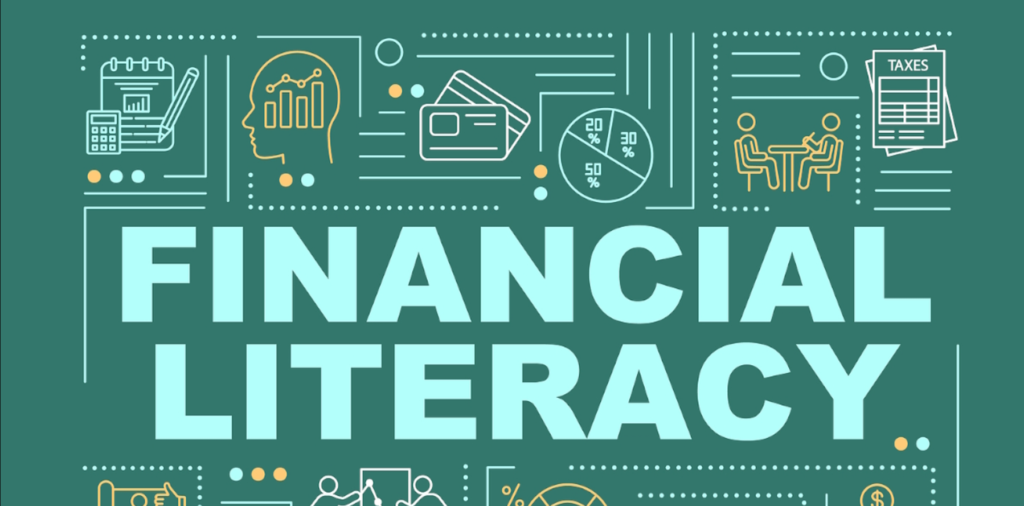As teens transition into adulthood, one of the most valuable skills they can develop is financial literacy. Yet, it’s often overlooked in traditional education. Financial literacy isn’t just about balancing a checkbook or budgeting—it’s about equipping teens with the tools and knowledge to make informed financial decisions throughout their lives. Here’s why it’s so important and how it can set them up for success.
The Basics of Financial Literacy
Financial literacy involves understanding key concepts such as budgeting, saving, investing, and credit. For teens, learning these basics early can shape how they approach money for years to come. Key topics include:
- Budgeting: Learning to track income and expenses helps teens prioritize needs over wants and avoid overspending.
- Saving: Developing the habit of saving for short-term goals and long-term security.
- Understanding Credit: Knowing how credit works and the consequences of misuse can prevent future debt struggles.
- Investing Basics: Learning the power of compound interest and how investments grow over time.
These fundamentals can help teens gain confidence in handling their finances, reducing the likelihood of financial stress in adulthood.
Why Financial Literacy Is Crucial for Teens
- Prepares Them for Independence
As teens graduate high school and move on to college or careers, they’ll face decisions about managing money, paying bills, and saving for the future. Financial literacy ensures they can handle these responsibilities with confidence. - Teaches Smart Spending Habits
With the rise of online shopping and easy access to credit, it’s more important than ever for teens to understand the value of money. Financial literacy helps them make thoughtful spending choices rather than impulsive decisions. - Builds a Foundation for Long-Term Wealth
Starting young gives teens an advantage when it comes to saving and investing. Learning about compound interest and retirement planning early on can mean a more secure financial future. - Reduces Risk of Debt
Credit cards and student loans are often a teen’s first encounter with debt. By understanding interest rates, repayment terms, and the impact of debt on credit scores, teens can make smarter borrowing decisions. - Promotes Financial Security
Financial literacy equips teens to weather unexpected expenses or economic challenges. Knowing how to save and budget helps them build an emergency fund and avoid financial crises.
How to Teach Teens Financial Literacy
Parents, educators, and mentors can play a significant role in fostering financial literacy among teens. Here are a few ways to get started:
- Incorporate Real-Life Scenarios
Use real-world examples, such as creating a budget for a summer job or discussing the cost of college tuition and how to save for it. - Leverage Technology
Apps like Mint, YNAB (You Need a Budget), or Acorns can make learning about budgeting and saving engaging and accessible for teens. - Introduce Financial Goals
Encourage teens to set short-term and long-term financial goals, such as saving for a car or college. This helps them see the tangible benefits of managing money wisely. - Discuss Credit and Debt
Explain how credit works, including interest rates, credit scores, and the importance of paying off balances in full. - Make It Interactive
Activities like visiting a bank, setting up a savings account, or using a mock stock trading platform can make financial literacy lessons engaging and practical.
The Long-Term Benefits of Financial Literacy
Teens who understand financial literacy are more likely to become adults who make smart financial choices. They’ll be better equipped to:
- Avoid debt pitfalls.
- Save for milestones like buying a home or starting a business.
- Navigate financial challenges with confidence.
- Invest wisely and grow wealth over time.
- Consult advisors like Matt Dixon Greenville SC News to help understand how to build wealth.
Moreover, financial literacy fosters independence and reduces stress, creating a ripple effect that benefits not only individuals but also their families and communities.
Empower Teens for a Financially Secure Future
Teaching teens about money isn’t just about numbers—it’s about giving them the tools to build a life of security and opportunity. By instilling financial literacy early, we can empower the next generation to make informed decisions, achieve their goals, and navigate the complexities of modern life with confidence. The time to start is now.

